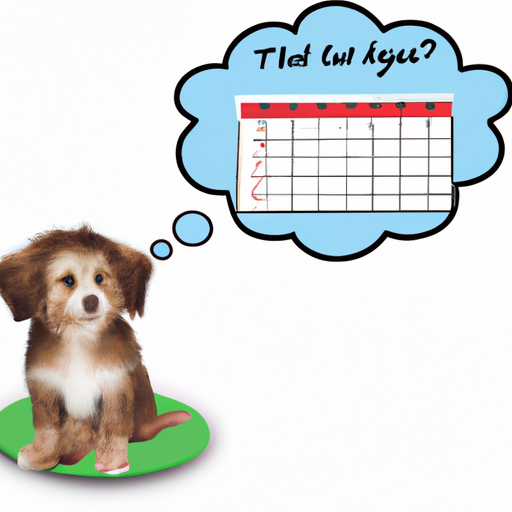Introduction
You, a caregiver, are the proud owner of a new puppy who brings joy to your world. However, with this new bundle of joy comes the responsibility of ensuring that they learn all the necessary skills. One of those key skills is potty training. How early should you start? How do you know when your pup is ready? This guide will provide you with the answers.
The Ideal Age to Begin Potty Training
In general, the best time to begin potty training your puppy is when they are between 12 weeks and 16 weeks old. At this age, they have enough control of their bladder and bowel movements to learn to hold it.
However, remember that every dog is unique. Some may be ready earlier, while others might need a bit more time. Just like with raising children, patience and understanding are key.
- 12 Weeks: Puppies at this age can typically hold their bladders for about one hour per month of age. So a three-month-old pup should be able to wait three hours between potty breaks.
- 16 Weeks: By four months, most puppies can hold their bladder for up to five hours.
Note: This is just a guideline. Your puppy might need more frequent breaks, especially during potty training.
Potty Training Techniques
Your role as a caregiver is to guide and teach. Here are some techniques to help your puppy get potty trained:
- Consistency is Key: Stick to a regular feeding schedule and avoid late-night snacking.
- Frequent Breaks: Start with hourly potty breaks and gradually increase the intervals as your pup learns to hold it.
- Use a Cue Word or Phrase: Use the same word or phrase each time to remind your pup what they’re supposed to be doing.
- Reward Success: Praise your puppy or give them a treat when they successfully do their business outside.
How to Handle Accidents
Accidents happen, and it’s important to handle them with patience. Here’s what you should do:
- Don’t Punish: Yelling or punishing your puppy can make them afraid to go in front of you, even outside where it’s appropriate.
- Clean Thoroughly: Clean up accidents with an enzymatic cleaner to remove odors that might attract your puppy back to the same spot.
- Stay Positive: Remember, potty training is a process. Progress may be slow, but your puppy will get the hang of it.
The Journey to Successful Potty Training
The table below gives a visual guide of the potty training progression:
| Age (Weeks) | Approx. Bladder Control Duration (Hours) | Notes |
|---|---|---|
| 12 | 3 | Start potty training |
| 16 | 5 | Increase intervals between potty breaks |
| 20 | 6 | Potty trained (with occasional accidents) |
Frequently Asked Questions
Q: What if my dog is older than 16 weeks and not potty trained?
A: Don’t worry. Puppies can be potty trained at any age. It might just take a little longer.
Q: How long does potty training usually take?
A: It varies. Some puppies can be trained in a few weeks, while others might take several months. Be patient and consistent.
Q: My puppy is having frequent accidents. What should I do?
A: Consider taking your puppy to the vet. Frequent accidents can sometimes be a sign of a urinary tract infection or other medical issue.
In conclusion, remember that every dog has their own pace when it comes to potty training. As a caregiver, your role is to provide guidance and patience to help them through this learning process.



